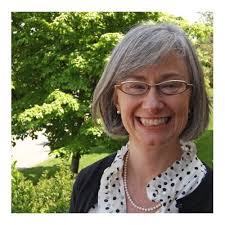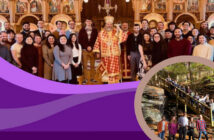Source: Patheos
By Jennifer Nahas
What is best about the Orthodox Church—holding true to early teachings and traditions—also presents its greatest challenge: making sure tradition doesn’t trump appropriate treatment of others. While many prize the richness of the Orthodox Church, our traditions can lead to exclusion of some from fully participating in the community of Christ. It’s a fine line, preserving ancient rites without marginalizing particular groups, within a patriarchal structure, and is ripe for discussion, particularly as it pertains to women.
Orthodoxy arrived in the early 20th century, at a time when the United States experienced unprecedented social, economic, and technological change. The last forty-five years specifically afforded women immense opportunities, and the Orthodox Church, somewhat secluded from secular society, has been slow to discern what are customs or values that can result in differential treatment versus what is based on Christ’s teachings. As a result, Church culture treats women differently depending upon whether they are single/married, parenting/childless, or at-home/working. By maintaining outdated assumptions about women as wife and mother, Church leaders have created a culture difficult for young women to reconcile, for they live secular, modern-day lives with expanded opportunities, but are diminished as Orthodox Christians.
Church leaders, most familiar with their ‘boomer’ moms and sisters, may be unaware of how radically different life is for a millennial young woman. Unlike 3rd-generation Orthodox women, our daughters don’t have memories of grandparents settling in a new country, building bedrock church communities. They don’t have, or crave, the ethnic glue that held communities together, but rather seek Churches that are not ethnocentric as they are fully integrated into Western culture. Unlike their moms’ experiences, college is assumed, and they graduate having equal access to social groups, athletics, and academics; they rock the boat, assume their place at the table, push hard for their agendas and successes; they call out bullies, sexists, and racists. Some describe these young women as aggressive, disrespectful, and unladylike; instead, why not regard them as talented, discerning, and energetic?
This shift has had a huge impact on work, marriage, and family choices. Millennials delay marriage to pay off college loans before joining incomes. They seek relationships with people who affirm their passions and talents, which often result in blended religious marriages. For those who marry, children are not a given, with an increasing number choosing to be childless; and some remain single, finding rewards in pursuing professional endeavors. Universally, these young women are in the workforce, in traditional and nontraditional ways: some work part-time in hourly wage jobs, others run at-home businesses, while others climb corporate ladders, serve on boards and hold public office.
Our millennial daughters are celebrated in the workplace but diminished as parishioners in Orthodox Churches. For many, Orthodox tradition has scarred them as teenagers—they cried when they couldn’t serve along side their altar boy brothers, sat bewildered sitting on one side of the Church, and felt marginalized by not reading the epistle or singing with the chanters.
For them, in this modern time, it’s unimaginable that mere biology preempts full participation in Church along side their brothers. And this belittlement continues as they emerge into adult years as Church members. Our daughters are ridiculed for the way they look. They are told to put on a skirt, cover their shoulders, cover their heads and uncross their legs, and they question why these standards apply only to women. They have been tapped on the shoulder in the communion line and asked if they are menstruating. They are defined as a possible mate and offspring-bearer for the seminarian, an uncle, or a son. And, they are told subtly and overtly, that only two meaningful life choices await them: marriage or monastery.
Marriage and monastic living are indeed high callings, but not the only way for our daughters to live out their Christ-centered vocation. By solely defining them as mate and offspring-bearer puts them in a box and does not honor their potential contributions. Our daughters are changing the world as lawyers, teachers, actresses, and scientists. The church needs to focus on what they are doing presently and see how their talents can be used in Church ministries.
Sorting out what is tradition and cultural attitude about women’s place will be challenging for the Orthodox Church as an institution with only males at the top. But that doesn’t mean it’s not doable. There are ways to bring a diversity of ideas and life experiences to the top, and mitigate the “group think” attitudes about the role of women in the Church. To start, Church Hierarchs could launch a public campaign to bring women into all aspects of administration and leadership positions at the parish, diocesan, and archdiocese board of trustees level. They could expand training and employment opportunities for women to serve as outreach workers in missions, teaching and preaching. Orthodox Chaplaincy continues to thrive and can be made stronger by universally blessing all women to minister. And as discussed for decades, bringing female altar servers to our Churches sends a strong message to our girls in the pews about their place. Re-establishing a fully functional Diaconate with women increases capacity to serve, and allows for women-to-women pastoral counseling.
“There is neither Jew nor Greek, there is neither slave nor free man, there is neither male nor female; for you are all one in Christ Jesus.” If we focus on Galatians 3:28, the Orthodox Church would align Church culture to Christ’s teachings, help the Church sort out what is tradition and what is a cultural attitude and ensure our young, talented women are fully engaged and participating as members of Christ’s Church without shame, marginalization or harassment. Launching an effort to address these attitudes and bring women into administration and ministerial positions can re-shape culture, build up the Body of Christ and help young women find their spiritual home in the Orthodox Church.
Originally posted on January 16, 2015.
Jennifer Nahas is the co-founder of Brigham Nahas Research Associates (BNRA), a Massachusetts firm specializing in evaluation research that promote success for young people in high school, college, and beyond. She was the former Executive Director of Orthodox Christian Fellowship and is the proud mother of two millennials.
[subscribe2]





1 Comment
Dear Jennifer,
Some of your comments regarding the role of women in the Orthodox Church are well taken. However, the restricted practices that you’ve noted in your article are not true in all parishes. In my parish, that’s characteristic of most Greek Orthodox parishes in the Chicagoland area, women are invited to read the epistle as well as other readings from the Old and New Testaments. Our choir consists of more women than men and during certain holidays, women are invited to chant with the psalters
In my parish, we do not segregate men from women and women are never prohibited from the Eucharist at any time of the month or year. Also, it is now our practice when churching infants, both male and female infants are brought into the altar. So, please let me know the restrictive and sexist parishes you are referring to in your article so that I don’t make the mistake of visiting any of them.